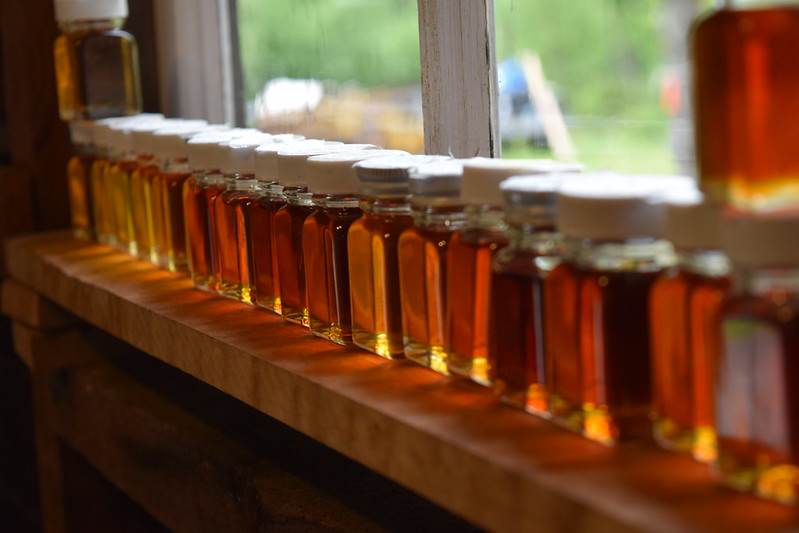Search Results
Results for: 'Sap'

Compared to the relatively simple composition of maple sap, maple syrup has over 130 different identified flavor and aroma compounds. The predominant classes of flavor compounds are phenolics, pyrazines, and carbonyl-based compounds. Typically, li...

In Vermont, Grade A maple syrup is divided into four distinct color classes. Those classes are Golden, Amber, Dark and Very Dark. The lightest grade of syrup, Golden, has the most delicate flavor. A lot of the time it will be made at the beginning...

The recent period of expansion in the maple industry has seen both established operations grow and many new operations start from scratch. Some real estate listings of land include estimated potential taps. But how many of those taps are actually ...

Sugar makers rely on healthy, abundant maple trees to provide sap each spring. Taken together a group of maple trees managed for sap collection is called a sugarbush. Developing a healthy, productive sugarbush takes time and effort. Forests are hi...

Like people, plants have strong mechanisms to prevent the spread of microorganisms within their tissues. Trees are capable of "walling off" wounds to prevent infections from spreading throughout the tree. This healing process also slows, and event...

Some producers use membrane separation (called "reverse osmosis" or simply "RO" within the maple industry) in addition to evaporation with heat. In this process, sap is forced through membranes that have pores which are large enough for water to p...

The sugaring season has been over for a while. Maple trees ended their annual period of dormancy when their winter buds broke, allowing new leaves to emerge. These lush green leaves are now working to produce all the energy needed for the tree to ...